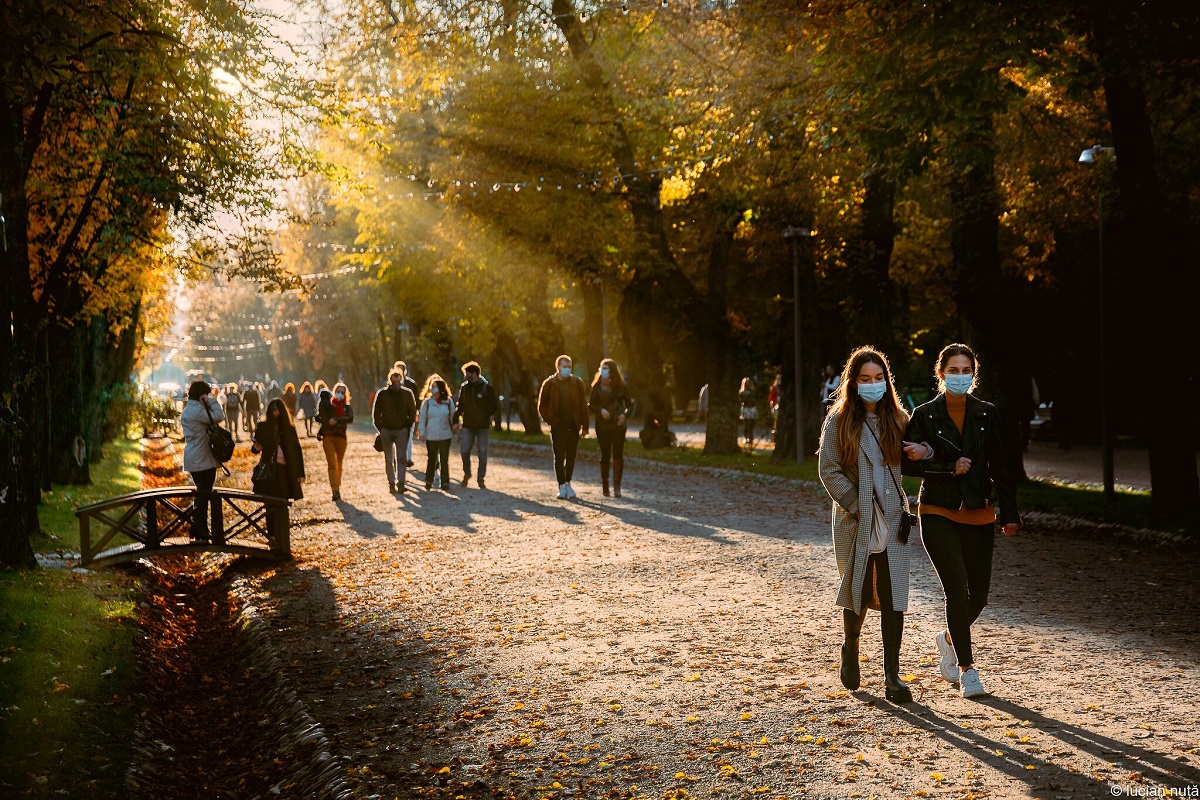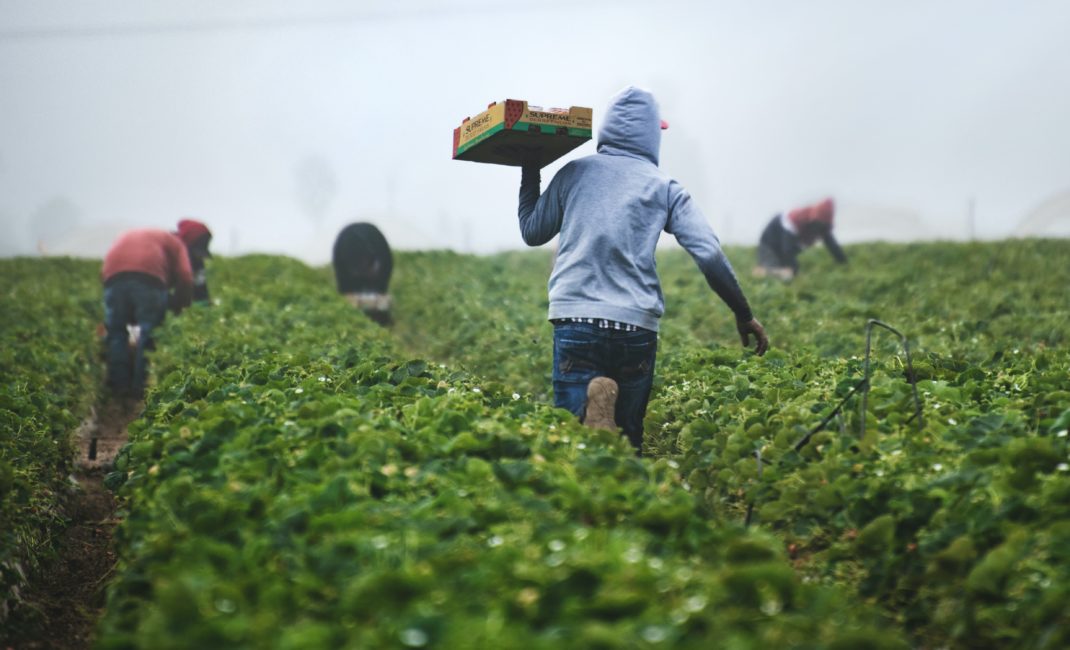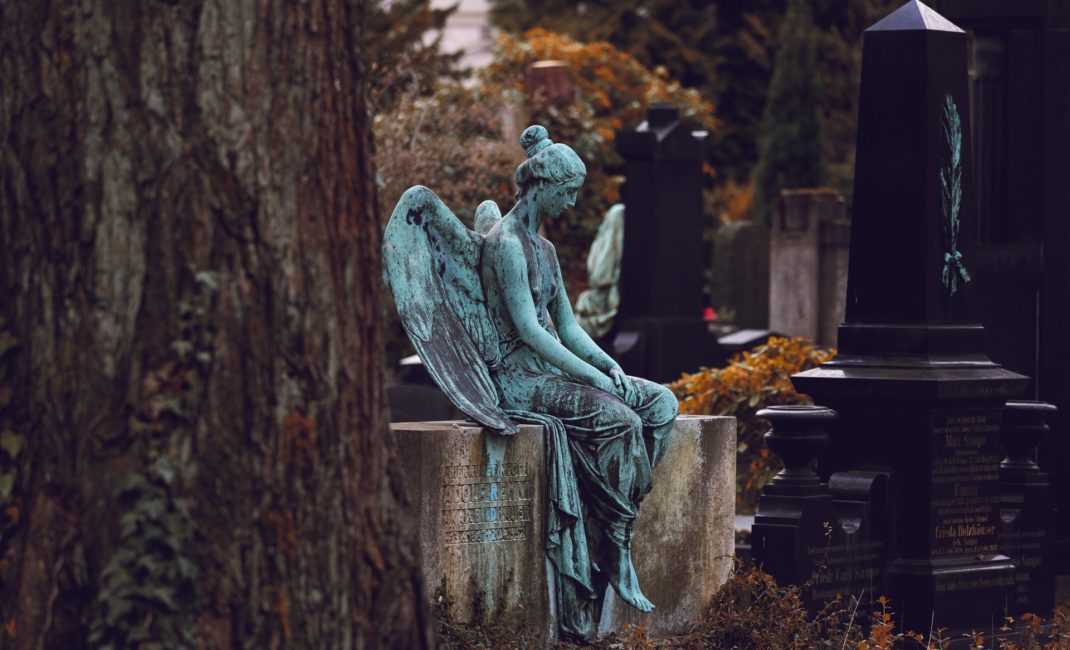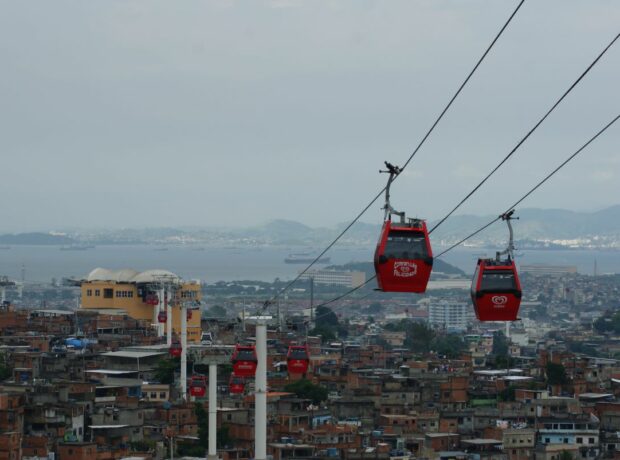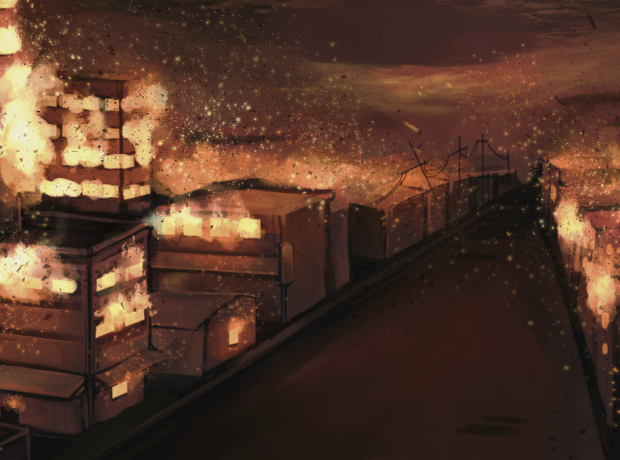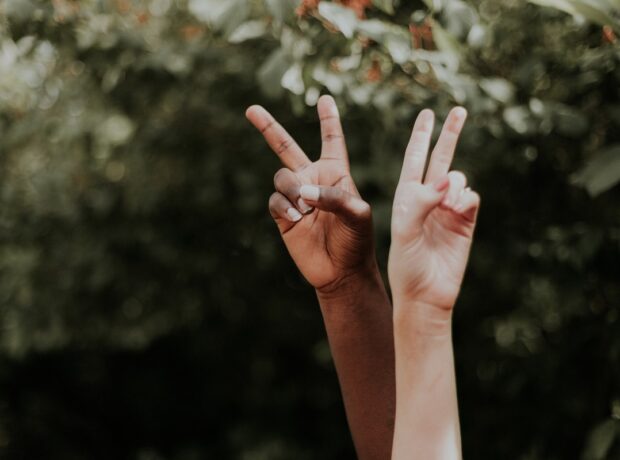The Covid-19 pandemic has magnified socio-economic disparities, from global health inequalities to institutional racism. It has also highlighted humanity in the form of mutual aid and mass volunteering programmes to support the most vulnerable.
Two years since the UK government declared a national lockdown, these 19 creative responses to the global pandemic, from student-led podcasts to reporting from refugee camps, ask what lessons we can learn.
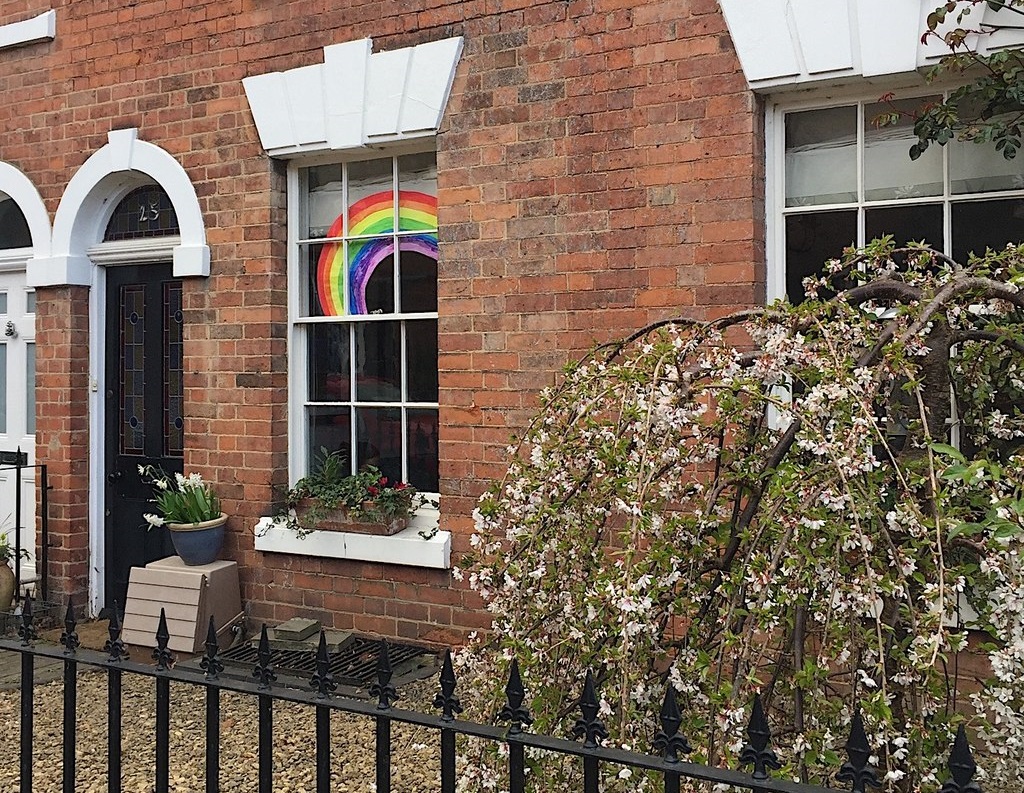
A rainbow in a window in Broad Street, Warwick – by Robin Stott.
‘Window dressing’ in the COVID-19 pandemic: The troubling story behind the rainbows in the windows
How has the meaning of the iconic rainbows in the window change over the course of the pandemic? Mum-of-two Amanda Kowalczyk recounts her experience of putting rainbows in the window with her young children and reflects on how she began to notice their potentially sinister undertones.
Find the full story here.

Global Health Equity: How could we make vaccine access fairer?
A new three-part podcast about COVID-19 vaccines asks how our response to the pandemic could be more equitable. This first episode of A Shot In The Dark investigates the global inequities in rolling out vaccines in a pandemic context.
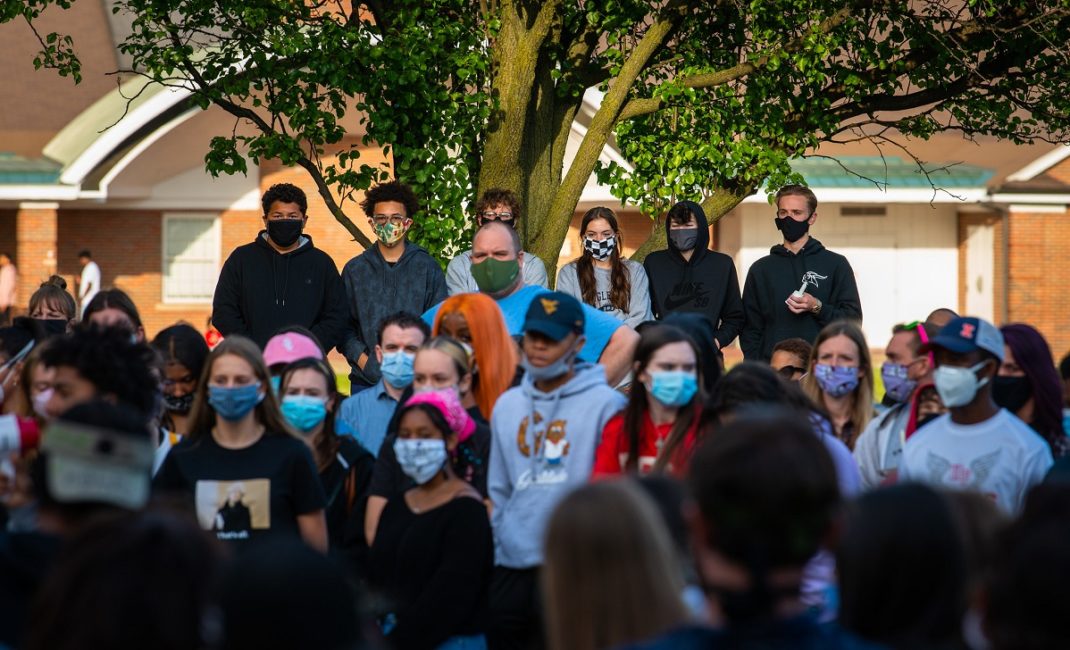
Young adults attend a vigil held in Homewood, a south suburb of Chicago. Photo by risingthermals.
The Next Generation: How are young people being affected by the Covid-19 pandemic?
Young people’s views on the response to Covid have often gone unheard. In this podcast episode, a recent university graduate interviews three other young people, asking why concerns about their education, their health, and the vaccines have gone ignored.
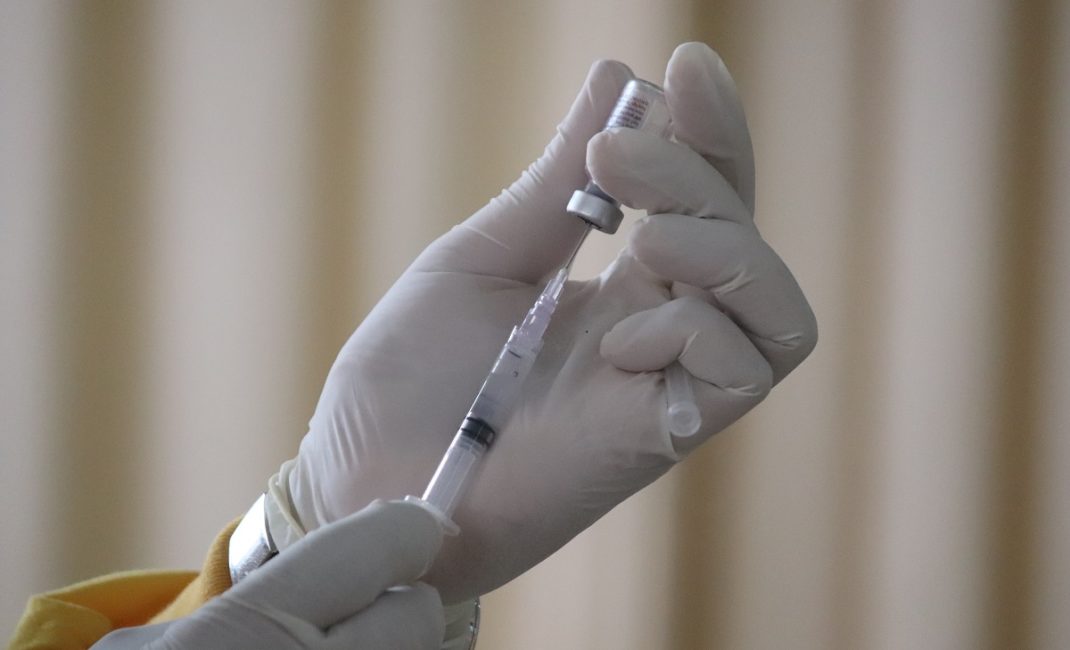
A podcast about Covid-19 vaccines and health inequalities
Covid-19 vaccines: Why are at-risk people being neglected?
Are human rights really for everyone? The Covid-19 pandemic has raised questions about how we prioritise healthcare and why we accept gross inequalities. This podcast episode – the second in new series A Shot In The Dark – asks how we can address inequalities in our communities and around the world.
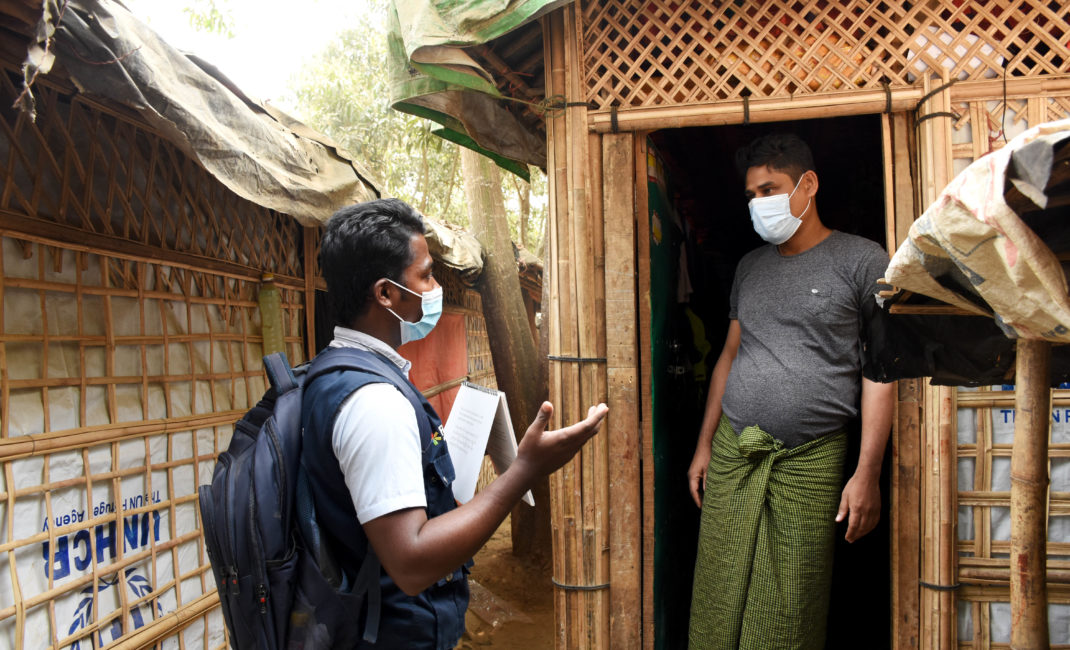
Finding the right words: Translating the Covid-19 pandemic in Rohingya refugee camps
How do you convey vital health messages when the terms simply don’t translate? With the extra pressure of an internet blackout in Rohingya refugee camps, Jennifer Chance finds organisations such as Translators Without Borders are carefully considering local dialects and biking across the camps with loudspeakers.
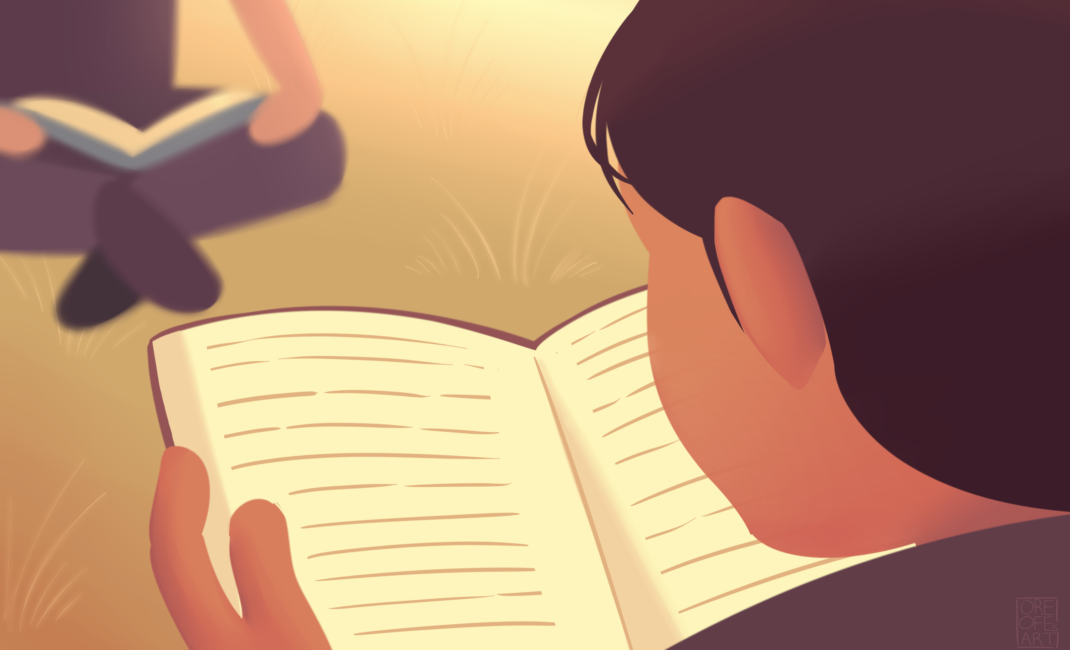
Teaching in lockdown: Emergency English classes for refugee children
This evocative story brings to life the challenges – and rewards – of teaching during the Covid pandemic lockdown. Ruby Turok-Squire won the postgraduate prize in Lacuna’s 2020 Warwick Law School Writing Competition for detailing her experience of cycling from garden to garden to read with refugee children under the restrictions of social distancing in the West Midlands, UK.
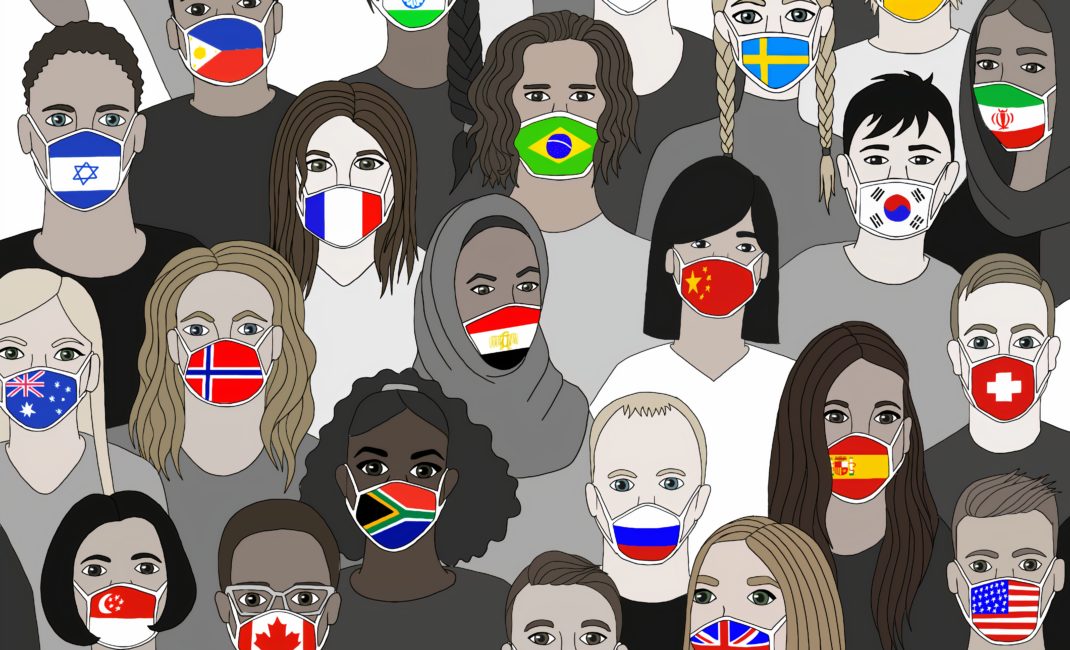
To mask or not to mask? United Nations Covid response artwork by Laura Makaltses showing face masks around the world
To mask or not to mask?
Students Allison Leung and Ashley Wong saw for themselves the backlash against face masks in the UK before returning home to Hong Kong where masks are normal and expected. Here, they explore what caused the East-West divide in opinion on face masks – and ask whether the pandemic could change the philosophy and fabric of the UK and US to make them less individualistic and more community-minded.
Why asparagus season leaves a bitter taste in Covid-19 Germany
Laura-Isabela Meichsner, a German citizen whose grandparents emigrated from Romania, finds Covid-19 has uncovered something Romanian and other eastern European seasonal workers, families and communities have known for so long but has remained invisible to the general public: The working and living conditions of seasonal workers from Eastern European countries were and still are horrific in Germany.
Has Covid proved that an honourable burial should be a human right?
At the height of the Covid crisis, unprecedented death tolls pushed some countries to the limit. What can we learn from a pandemic that has now claimed the lives of 2.3 million people around the world? How should we manage heavy death tolls in future emergencies? And after seeing some countries resort to burying their dead in mass graves, is now the time to call for an international right to an honourable burial?
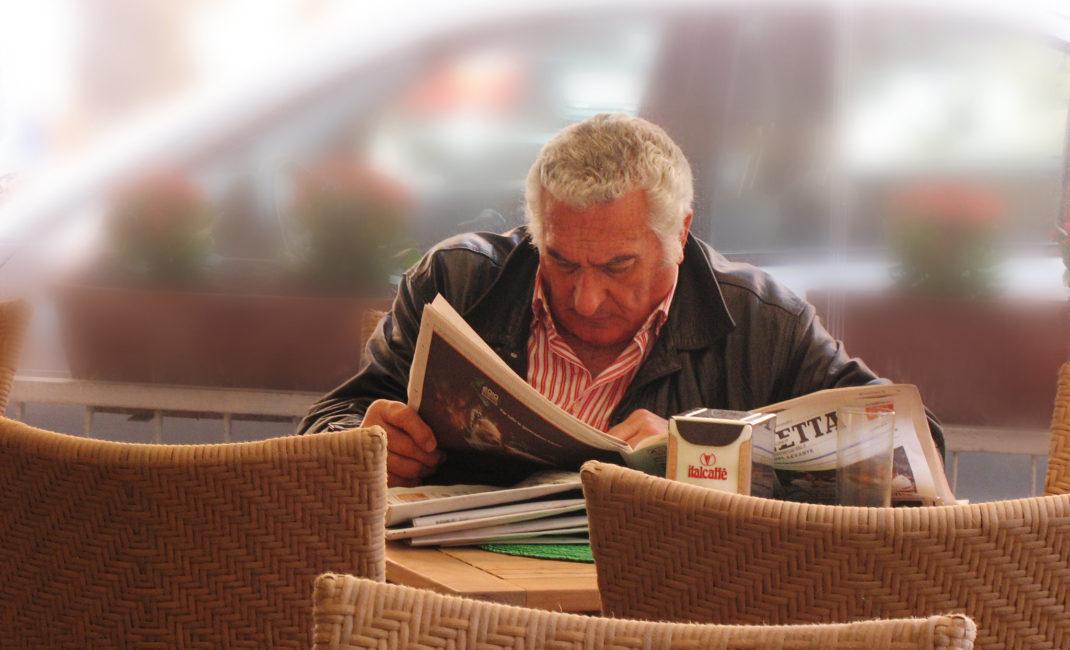
Are newspapers spreading anti-refugee sentiment? Picture by Elliot Margolies
How Covid and “fake news” fuelled anti-immigrant sentiment in Italy
In Italy, the Covid pandemic has led to a rise in anti-immigrant sentiment. Alessia Lucifora finds this has been exacerbated by anti-refugee propaganda circulating online.
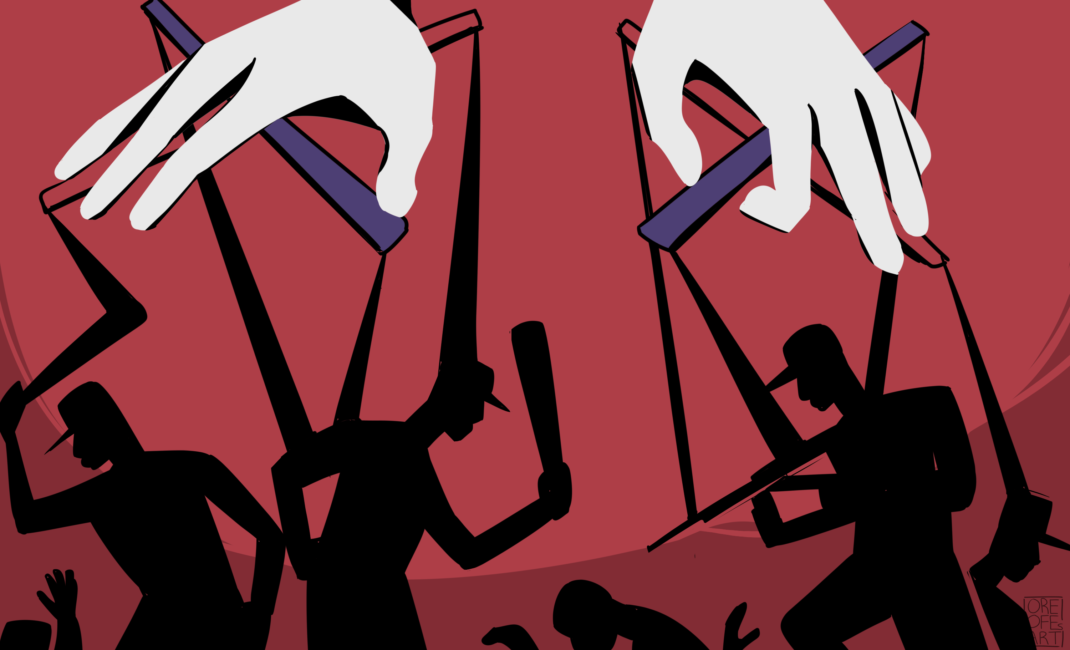
The never-ending tale of police brutality in Kenya
What impact have Covid, curfews and police patrols had on brutality and public safety in Kenya? Anokhee Shah tells the story of a 13-year-old boy who was shot by a police officer and finds this issue has a long and ugly history.
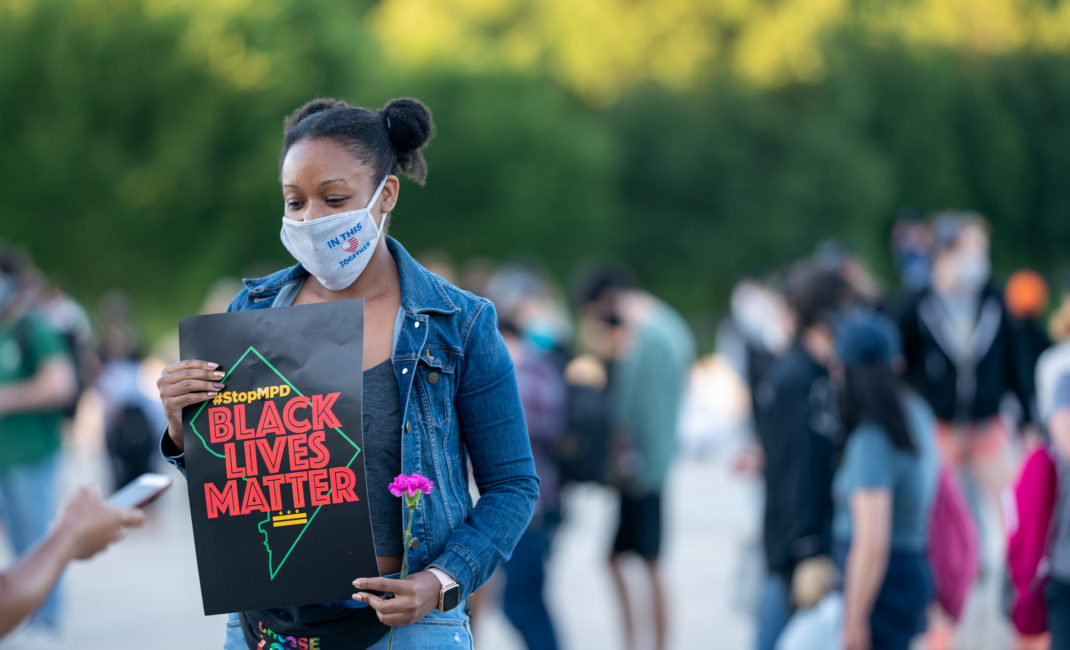
George Floyd vigil at the Lincoln Memorial – by Miki Jourdan
Coronavirus reminds us that America doesn’t like Black people
One of the first stories we carried about Covid-19 examined how the disease was killing Black Americans at three times the rate it was killing white people. Racist attacks – by both the public and the police – were leading the news agenda. Kathryn Graves explores how the pandemic has exposed the institutional racism that defines the second-class status of Black people in the USA.
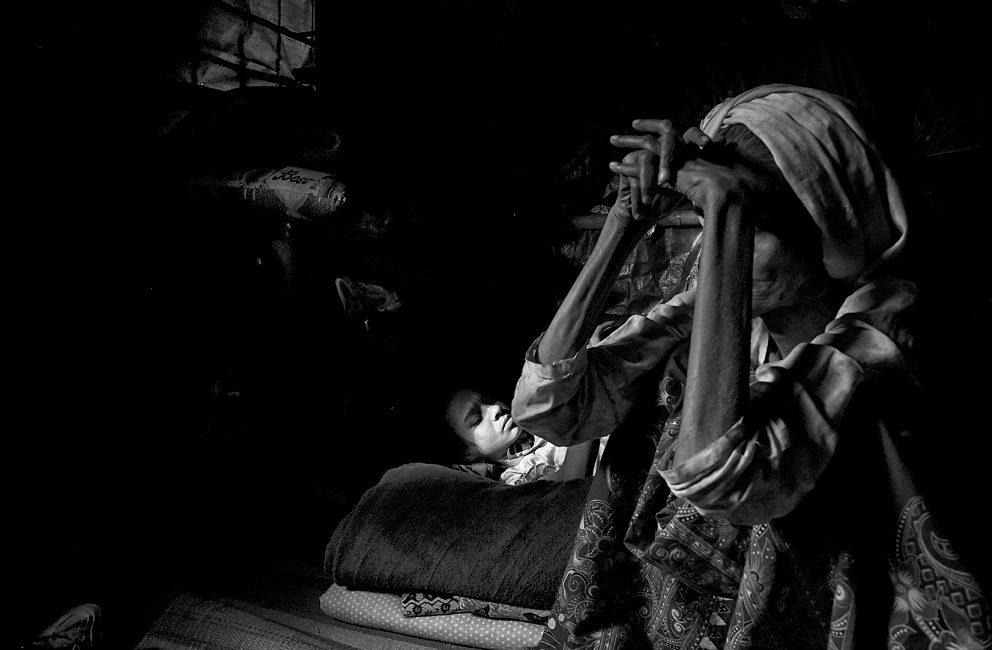
Due to the Covid-19 restrictions, healthcare in the camps has been drastically reduced – by Francesc Galban
Will Covid strip what few rights the Rohingya refugees have left?
Since one of the fastest growing migrations in recent history, the Rohingya refugees in Bangladesh have been living in a climate of uncertainty and mistrust. Now, confronted by a global pandemic and the prospect of being banished to an island for quarantine, this photo essay asks what toll Covid will take on the Rohingya people.
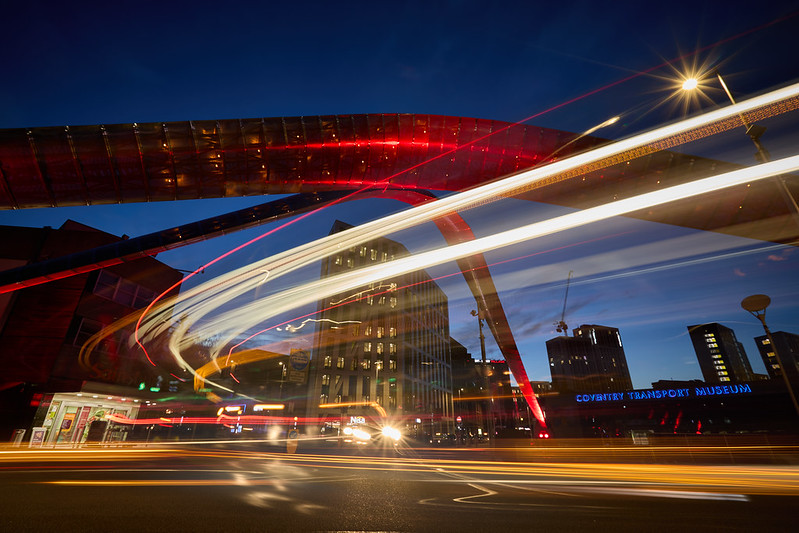
What impact will the Covid pandemic have on women in Coventry? – image by Coventry City Council
How is the Covid-19 lockdown affecting women in Coventry?
As the Women’s Budget Group published the first in-depth analysis of the impact of the COVID-19 lockdown on women in a specific city, research assistant Anna Johnston shared what she found when she examined the impact of coronavirus in Coventry.
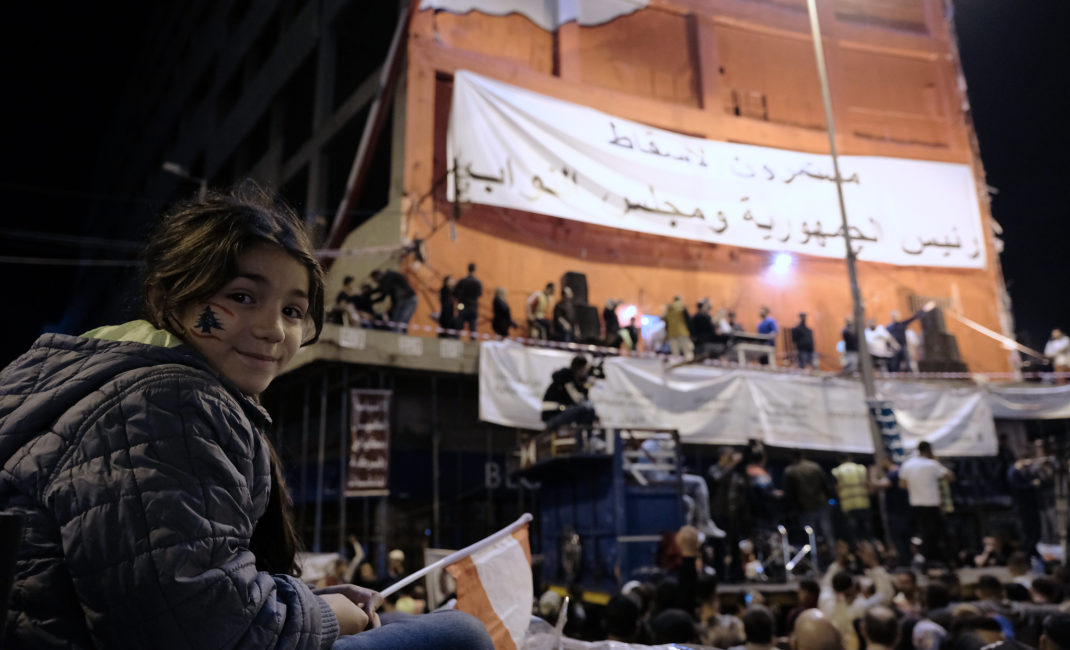
Tripoli protests by Nadim Kobeissi
As Lebanon’s economy collapses, Syrian refugees are making easy scapegoats
Gripped by crisis since October 2019, a serious economic downturn, compounded by Covid-19, is hitting Lebanon’s most vulnerable citizens hard. And the country’s anti-corruption protests which began as unifying, secular and a combined call for political change, are in danger of descending into sectarianism.
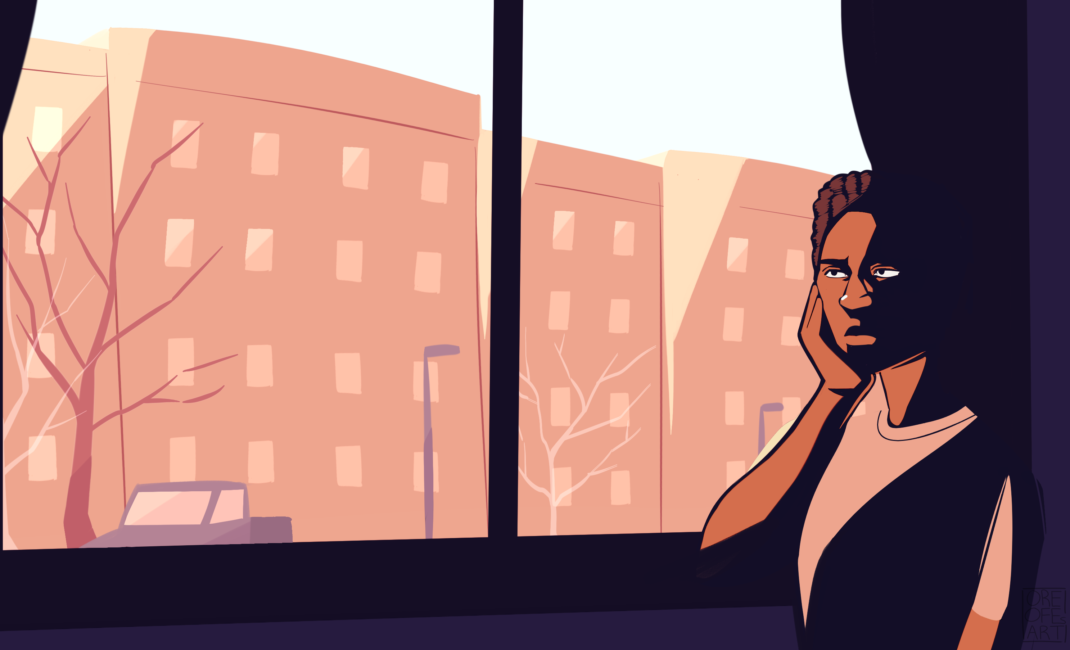
Nis in lockdown in Germany – by Oreofe Morakinyo.
Life under lockdown in East Germany
Due to return home to the UK from their internship in Leipzig on the day Germany announced lockdown, Nis Warsame was stuck in a foreign country, relying on German-speaking friends for updates.
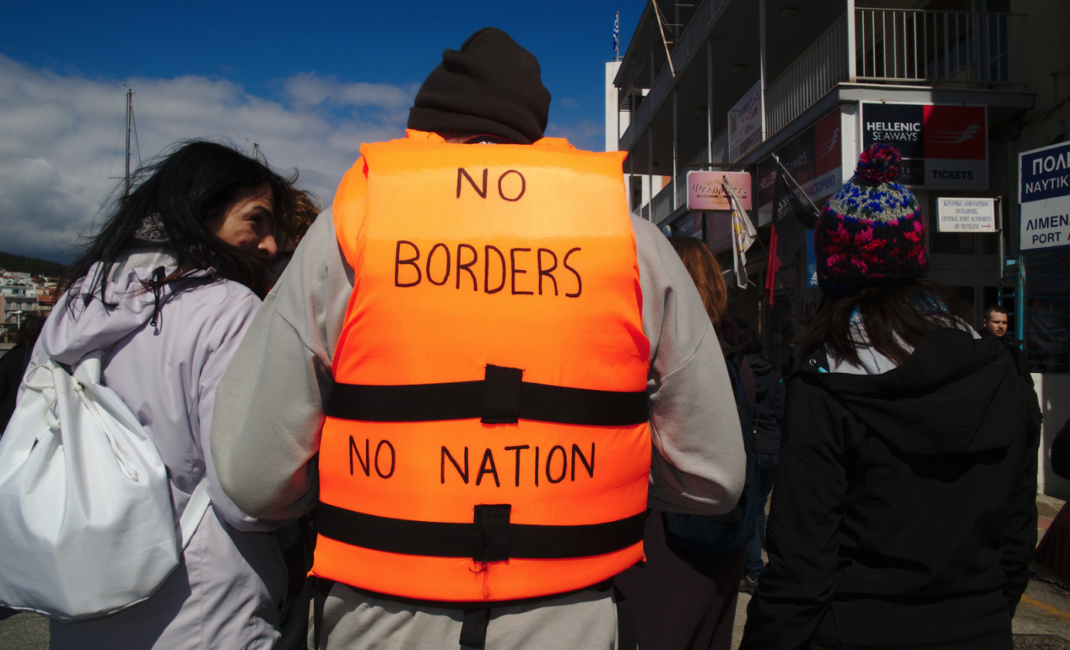
Image by Phil Jones
How Europe is using coronavirus to reinforce its hostile environment in the Mediterranean
How is the coronavirus pandemic affecting refugees seeking safety in Europe? And as the continent is pre-occupied with internal affairs, are some countries using COVID-19 as an excuse to refuse sea rescues and enforce anti-immigration strategies? Maurice Stierl considers the current situation in the Mediterranean and the response from Italy, Malta, Libya and the EU.
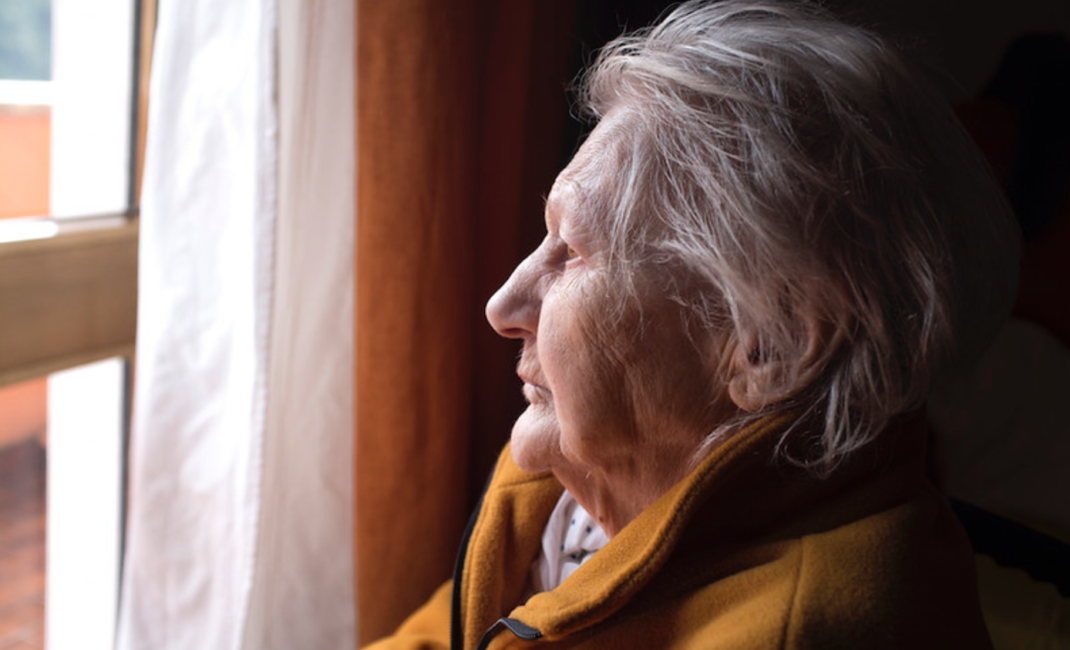
Main image by Penn State
Coronavirus is affecting the wellbeing of people with intellectual disabilities
Changes to our daily lives since the coronavirus outbreak are proving difficult for many, but people with intellectual disabilities, who often rely on routine and consistency, are facing an even greater challenge.
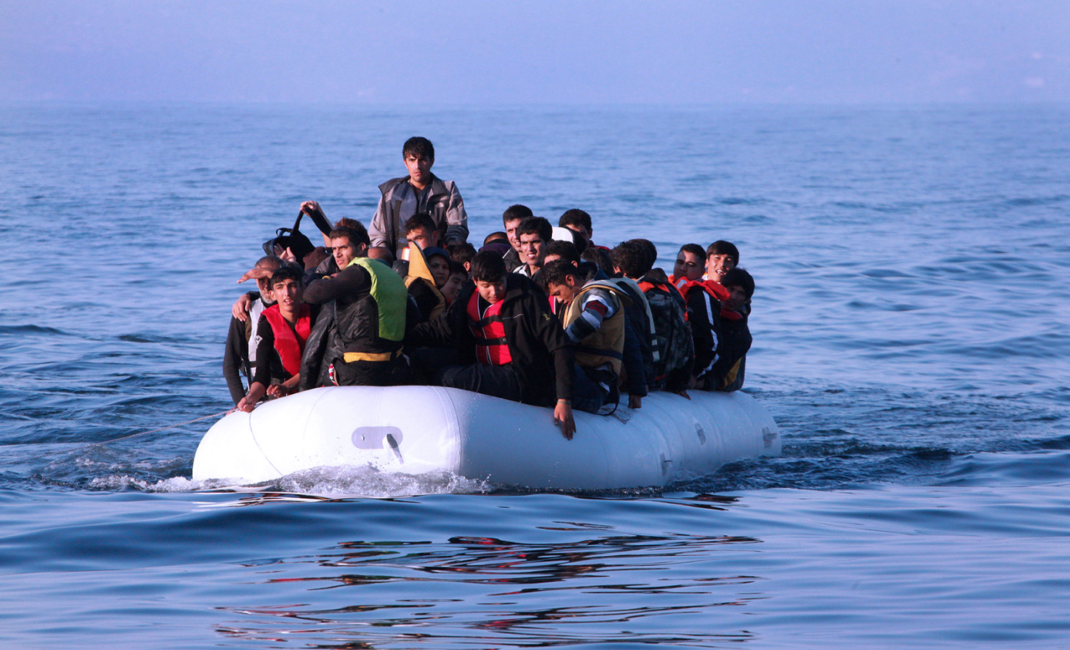
Photo by Steve Evans
In times of crisis, refugees cannot survive on compassion alone
Coronavirus is spreading, tensions at borders are rising and refugee camps are overcrowded and under-resourced. As refugees at the Greek-Turkish border are met with water guns and hostility, Mariana Fotaki calls for countries across the EU to offer more than just compassion.
Main image by Nuță Lucian.Read more:
